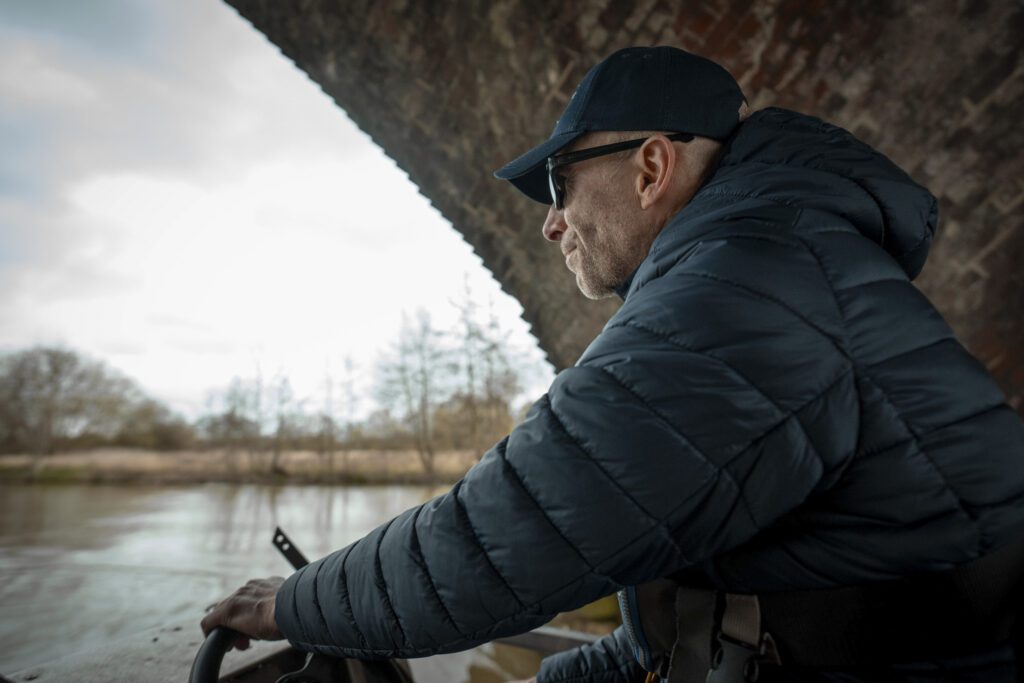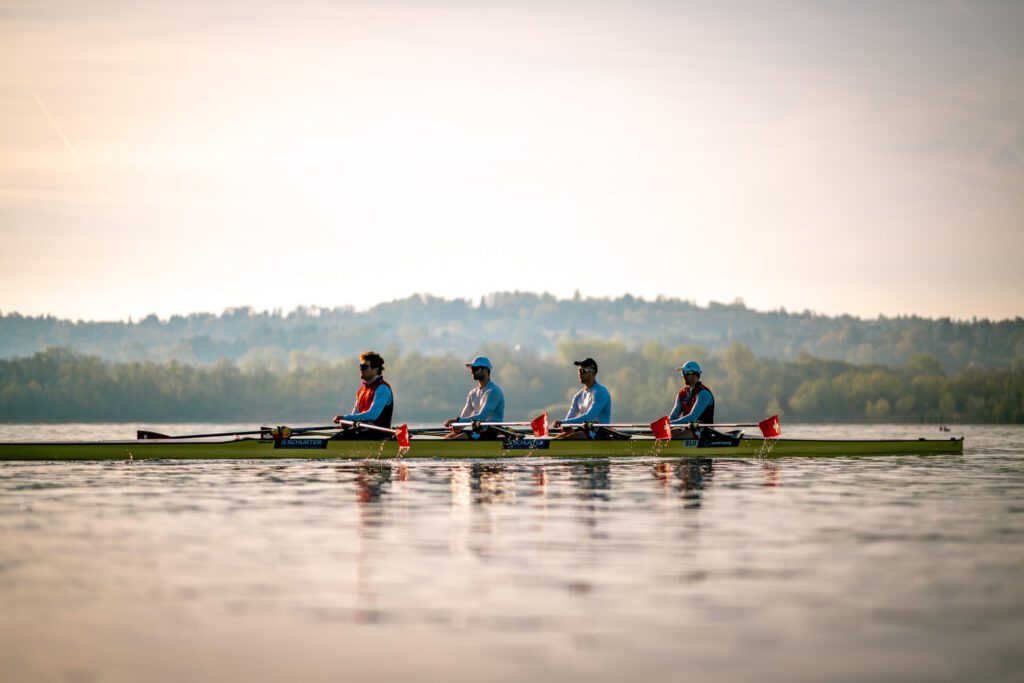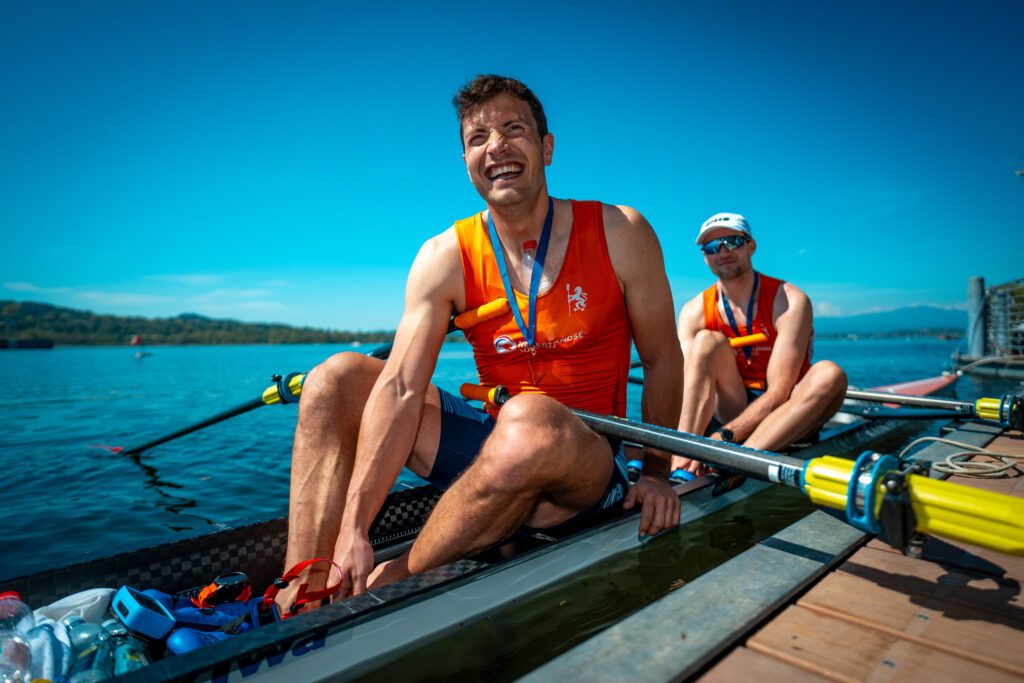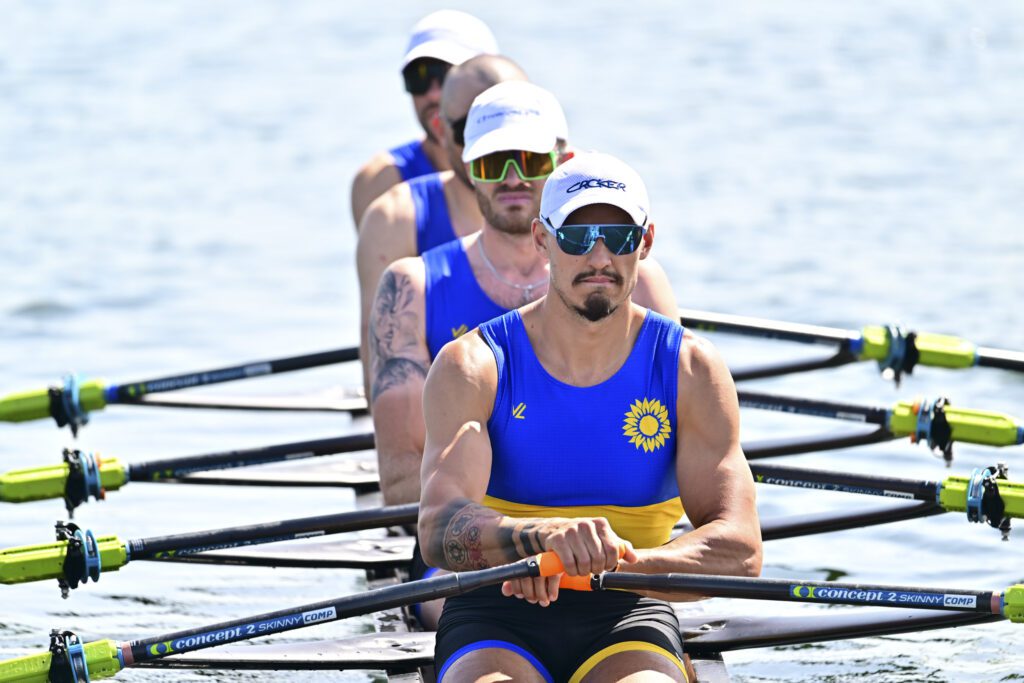Pinned to the board in the changing room of Cambridge University’s Goldie Boathouse is a small wooden cross with a poppy fixed in the middle, a small memorial to the 21 Cambridge blues who lost their lives in the World Wars. It serves as a stark daily reminder of one of the more special aspects of being involved in a Boat Race campaign; upholding the honour of those who have come before. For the past five months, I have been preparing for the 165th Boat Race with the Cambridge University Boat Club (CUBC), where we have been training twice a day, attempting to achieve the first back to back Cambridge victories since 1998. It will be no easy feat.
Every time we land back on the dock, we need to be better than when we pushed off.
Mathew Holland
This year at CUBC we are fortunate to have several experienced internationals trialling, including Olympic sculler Natan Węgrzycki-Szymczyk, two-time Olympic champion James Cracknell and U23 silver medallist Freddie Davidson. In the build up to this year’s race there has understandably been a lot of media attention focused on James’ return to rowing, and I did find it daunting the first few times he got into a boat with me. However, boat races aren’t won on past achievements and just like anyone else James has to earn his opportunities and show himself out on the water if he wants to be considered for a seat in the Blue Boat.
My own coxing career started on the Tideway in London, at Westminster School Boat Club. I remember watching in awe as the Boat Race squads came to train in London, bringing with them their blue minibuses and launches filled with photographers. To me this was the epitome of rowing glamour, and I idolised it. The Boat Race is a cox’s test as much as it is a rower’s. With the line of fastest water and the Surrey and Middlesex bends to contend with, the thought of getting a crack at it used to send shivers down my (very) small 15-year-old spine.
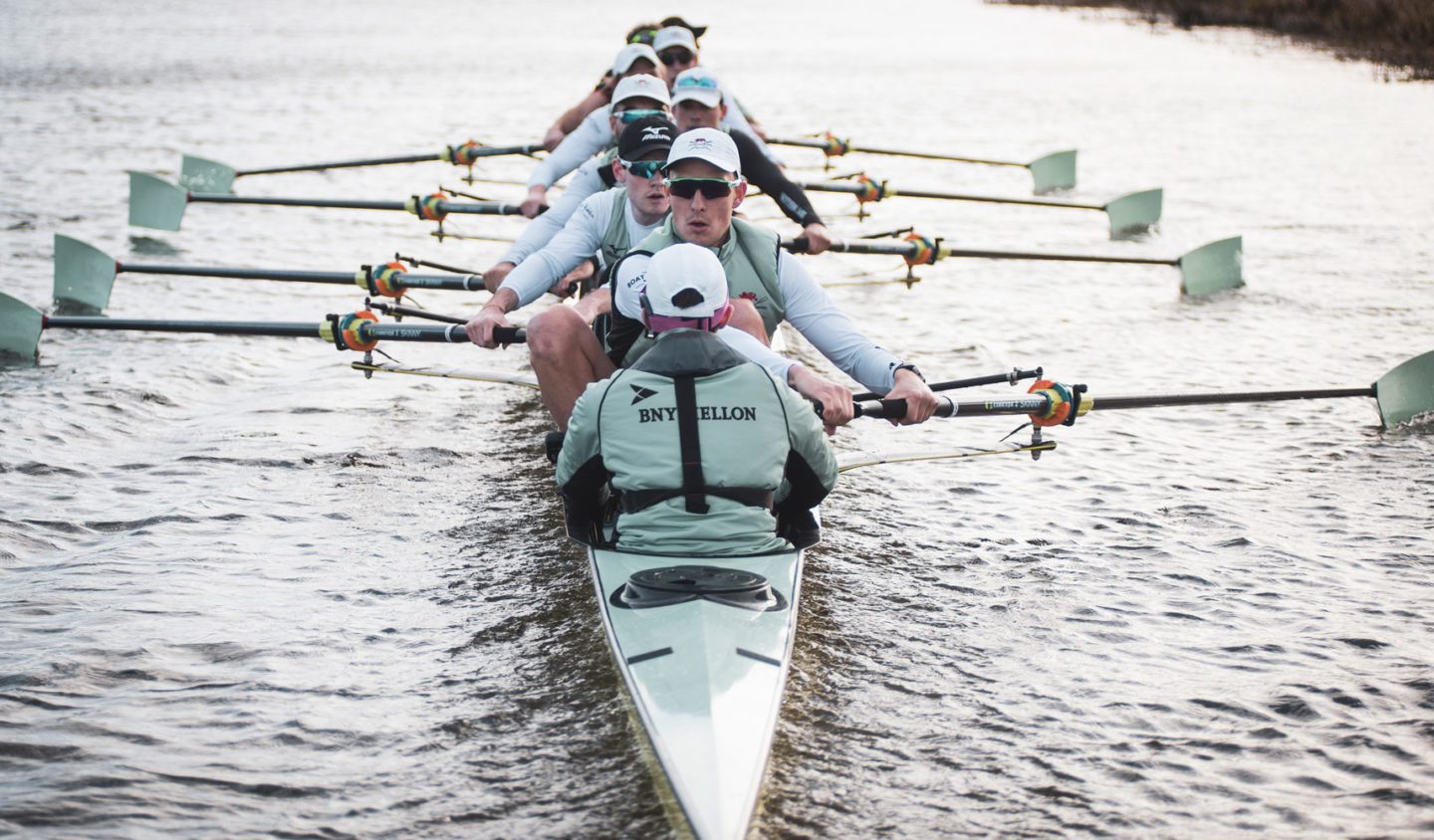
Credit Benedict Tufnell
Fast forward four years and I’m sitting on the start line in Putney, trying and failing to ignore the sound of the helicopter above me as I indicate to the umpire that I’m not ready. I ask the bow pair to take arbitrary taps more in a bid to keep everyone calm and focused than to adjust my pointing. After years of anticipation, it is a truly surreal experience. The roar from the riverbank never once fades, yet all nine of us remained wrapped in our own bubble of concentration, just executing what we have spent so long preparing for. As we approach the finish line, I go down the boat, naming everyone; a reminder for myself as much as anyone else that we have gone through this together. Ultimately, we have raced for the person sat in front and the person sat behind.
I realise now that this glamour is only a small, fleeting part of what competing in the Boat Race really entails. The majority of our work takes place behind closed doors, in the gym in Goldie Boathouse and on the cold, bland stretch of the Ouse in Ely that we call home. A typical day will involve a morning erg session or strength and conditioning in our Cambridge gym, followed by lectures and time in the laboratory. There’s enough respite to grab a quick lunch in college before the buses roll at 13:30 to take us out to our boathouse in Ely for an afternoon of work on the water. It is easy, especially in the winter months, to let the training become monotonous and routine, and I do frequently have to remind myself that every session has to count. With a finite number of strokes that can be taken before we line up on the start, there is simply not enough time to drift through our training. Every time we land back on the dock, we need to be better than when we pushed off.
In the winter, it is the team around us that drives us forward, and it is impossible to overestimate the importance of this. Spending six hours a day with the same group of people for eight months brings you closer than I could describe here, and it is this friendship and mutual respect that leads to the sensation of being greater than the sum of our parts. This is something that cannot be seat-raced and can only come from a culture of openness and transparency between us. Hearing a positive shout from the bow in the middle of a tough session pushes us on a great deal. There are disagreements, and people often don’t see eye to eye, but by voicing and discussing our concerns, team issues can be quickly resolved. It’s vital that no one carries anything on their shoulders into race day.
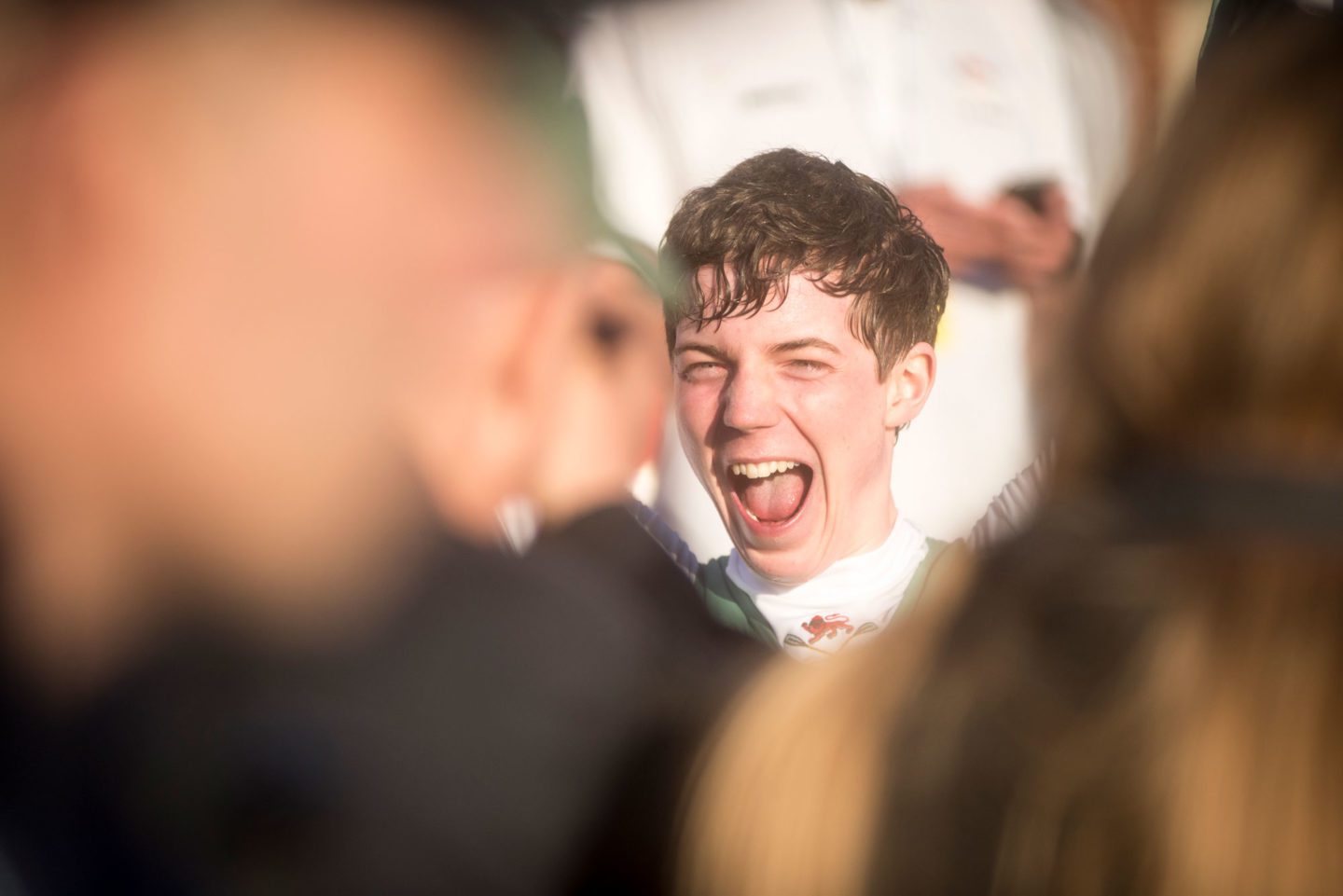
Credit Benedict Tufnell
As a cox, it is crucially important that the team feel able to come to me with feedback about my coxing. For example, after a session in the eight earlier this year, the stroke was not happy with the way I had called our settle, so he brought it up in the team debrief and we all discussed it and came to an agreement as a crew. A younger me would have found this difficult, but it is important to realise that we are all striving for the same goal and there is no room for egos. If it will make us faster come Boat Race day, it’s absolutely crucial that it is said.
Perhaps the most exciting aspect of a club like CUBC is the diverse range of athletes I get to work with. Rowers join the programme in September with a broad spectrum of experience. Some have had distinguished international careers whilst others will have noviced at their college the year before. In my year with the women’s team, I coxed a Blue Boat containing an Olympian, numerous U23 medallists and someone who had first picked up an oar only two years previously (U23 and senior medallist Imogen Grant). It was at times nerve-wracking to be an 18-year-old fresh from school, coxing people over 10 years my senior with an awful lot more experience than I had, but I learnt a lot by putting myself outside of my comfort zone, and I improved an awful lot as a result.
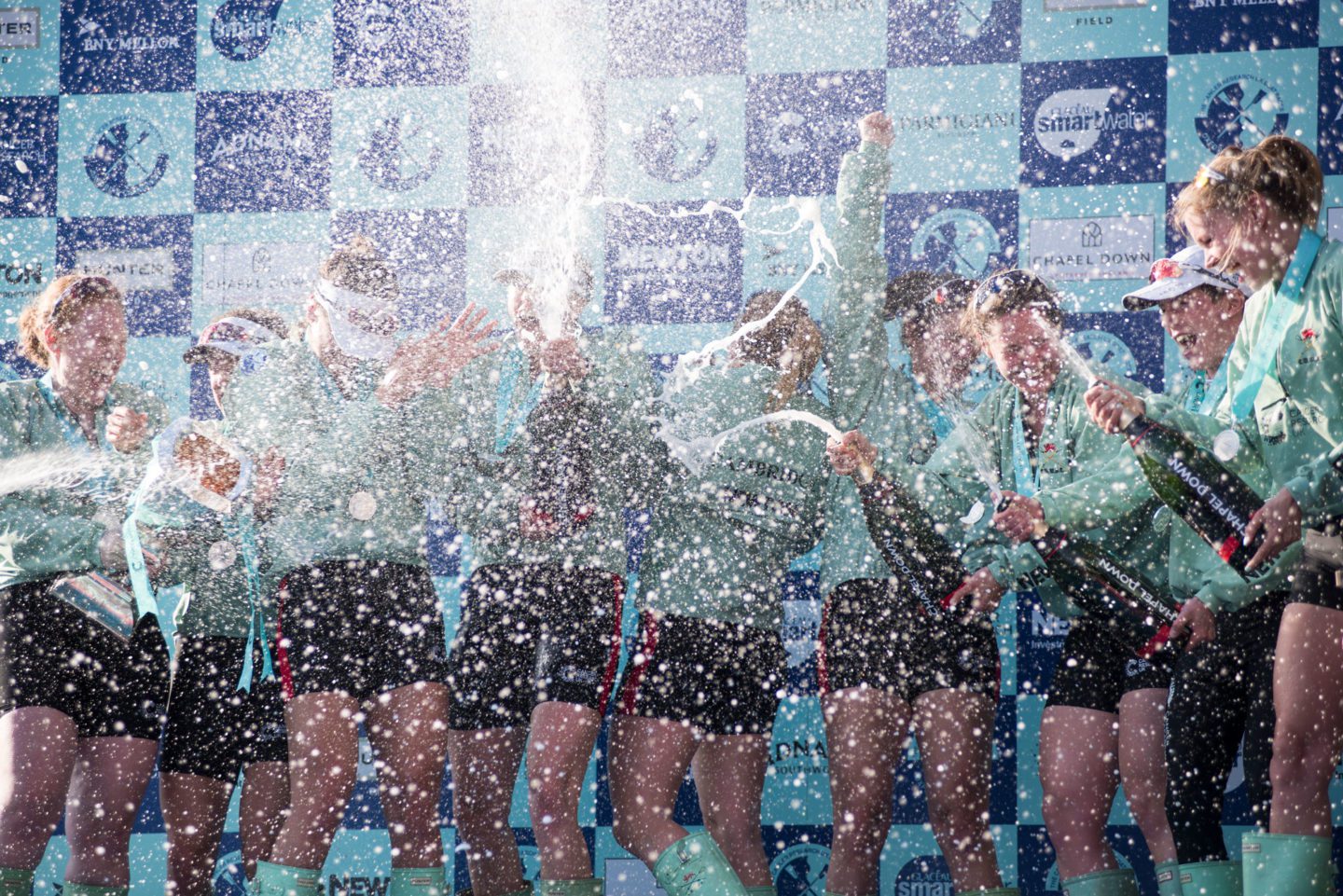
Credit Benedict Tufnell
I have learnt during my time with the Cambridge Boat Clubs that progress seldom comes in great leaps. Although the many hours on the ergo or the long UT2 paddles can seem tedious, it is here that the real difference is made. In the cold winter months when the Boat Race seems so distant, it can feel like the sessions last forever, but we have learnt to trust that investing the time and effort here will really pay off. The race is seldom won on the day with millions watching – it’s during the days, weeks and months beforehand, when no one is watching at all.
